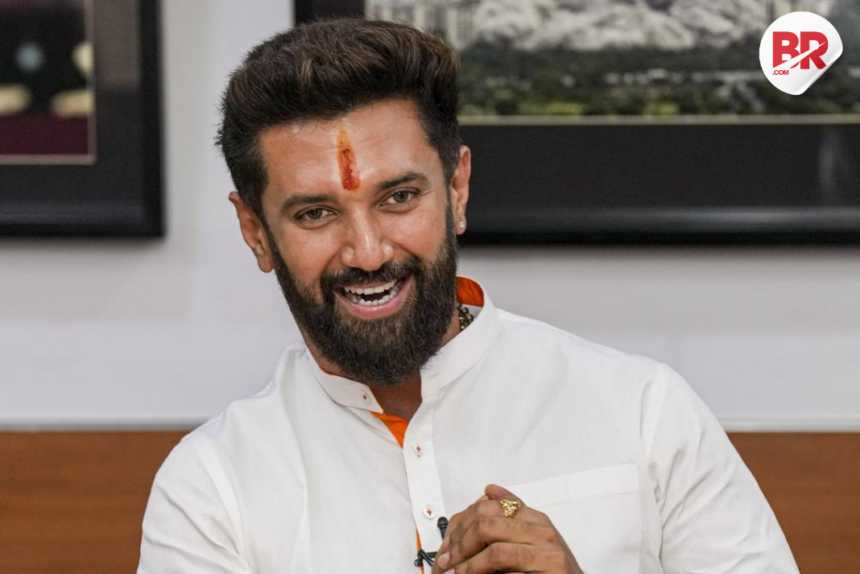The debate over India’s caste census is heating up again, and Union Minister Chirag Paswan has thrown a sharp question into the political ring: “Why didn’t they do it when they were in power?”
As the government prepares for the next Census, which may include caste-based data, opposition parties have been quick to take credit. But Paswan’s challenge cuts deeper than a campaign slogan. It urges us to pause, rewind, and ask: when it mattered, who actually acted?
What Does This Mean for the Average Indian?
For millions across India, especially from historically marginalized communities, a caste census isn’t just paperwork. It’s a chance to be seen.
It’s data that can shape everything from welfare access to job quotas to school scholarships. Knowing who needs help—and how much—is the first step toward meaningful policy.
Paswan’s point might sound like standard political sniping. But it also echoes a common public frustration: when did social justice become a seasonal campaign issue?
A Tale of Two Narratives
Paswan’s argument is rooted in political memory. He accuses parties like Congress of failing to act during their long years in power. Now, as the opposition rallies around the idea of caste data, he asks: Is this sincerity or strategy?
According to him, the current Modi government is taking a bold step that others only talked about. He frames this move as progress, not just politics.
Meanwhile, the opposition’s claim is that their pressure forced the government’s hand. They highlight protests, speeches, and parliamentary demands that created public momentum.
In short: both sides want to wear the social justice badge. The question is—who earned it?
आदरणीय प्रधानमंत्री @narendramodi जी उचित समय पर उचित निर्णय लेने के लिए जाने जाते हैं।
जो आज कहते हैं कि यह निर्णय उनके दबाव में लिया गया या चुनावी दृष्टिकोण से है—तो सोचिए, बिहार एक राज्य में चुनाव है, और आप राष्ट्रीय स्तर पर जाति आधारित जनगणना का फैसला लेंगे?
अगर यह फैसला… pic.twitter.com/7s2prLhsmC— युवा बिहारी चिराग पासवान (@iChiragPaswan) May 1, 2025
Why a Caste Census Really Matters
Behind the political theatre lies a serious question of equity. India’s last comprehensive caste count was in 1931, almost a century ago. Since then, policies have been made with guesses and estimates. That’s like trying to fix a leak in the dark.
A modern caste census could help:
- Target welfare programs to those who need them most
- Inform budget allocation for education, healthcare, and jobs
- Expose representation gaps in government and private sectors
As experts from PRS Legislative Research argue, granular data is the foundation of inclusive governance. Without it, policies risk becoming blindfolded acts of charity, not justice.
Beyond the Blame Game
What’s dangerous is reducing the caste census to a PR race.
Yes, it’s fair to scrutinize the timing and motives. Yes, leaders should be held accountable for past inaction. But once the blame dust settles, the real work must begin—ensuring that the data collected is accurate, protected, and used ethically.
Let’s not forget: caste is not just a checkbox. It’s a legacy of hierarchy that still shapes lives. Turning it into an election gimmick is not just cynical—it’s cruel.
“I support caste census — but not making the data public. That’s what happened in #Bihar, and I don’t support it. Caste figures should be for internal govt use, not for public or political consumption,” said Chirag Paswan during #ExpressAdda last month@iChiragPaswan added that… pic.twitter.com/J8kRA7yUxZ
— The Indian Express (@IndianExpress) May 1, 2025
Punchline with a Point
The irony? India built one of the world’s most ambitious digital ID systems with Aadhaar but still doesn’t know how many Dalits, OBCs, or tribals live here. We can track fertilizer subsidies by fingerprint, but we can’t count caste? That’s not a tech gap—it’s a political choice.
Final Thought: It’s About the Data, Not the Drama
Chirag Paswan’s question is less about party rivalry and more about priorities. If the caste census is as essential as leaders now say, it should’ve happened long ago.
But there’s still time to get it right. Instead of scoring points, politicians need to ensure the process is fair, inclusive, and free from manipulation. India deserves data that reflects its true diversity—and the policies to match.
Also Read BJP’s Caste Census Nod: Political Strategy or Real Change in the Making?




